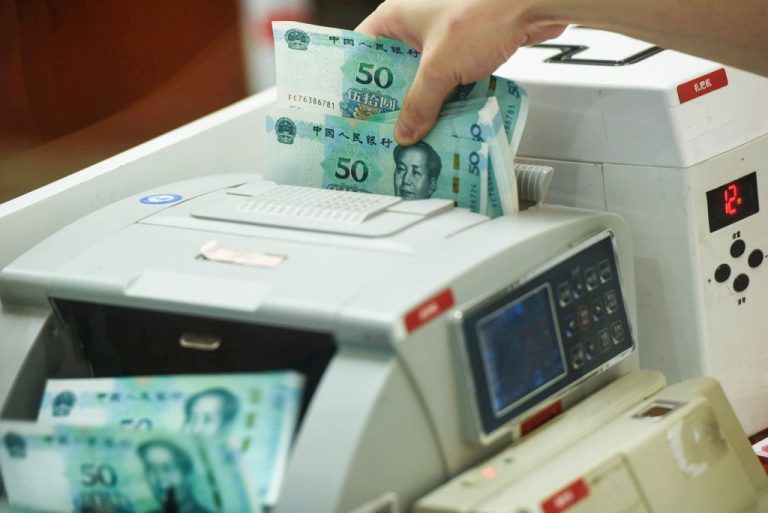A banking crisis in China’s Henan Province has seen hundreds of thousands of people unable to access their bank accounts since mid-April.
The four banks in question, located in Henan and neighboring Anhui Province, attracted a large influx of new customers due to the higher interest rates they were offering. The banks were offering an annual rate of 4.1 to 4.5 percent, as opposed to the standard 2 percent or less offered by larger banking institutions.
However, depositors there soon found themselves unable to withdraw funds from their accounts — worth an estimated total of 40 billion yuan (approximately US$5.9 billion) — leaving thousands without access to their life savings.
The incident has fueled a public outcry as desperate customers demand answers from the banks located in Zhengzhou, the provincial capital of Henan. Thousands of protesters have since taken to the streets and some have resulted in violent clashes with the police.
- Residents in China’s Henan Province Lose Access to Bank Accounts, Face Off With Police
- Chinese Protesting Frozen Bank Accounts Just the Tip of the Iceberg in Beijing’s Widening Financial Crisis
Financial ‘bomb’
According to Minxin Pei, a professor specializing in government studies at Claremont McKenna College in California, the banking problems in Henan could lead to a nationwide financial crisis. Pei warned in a column written for Japan’s Asia Nikkei on July 17 that a “bomb is about to go off,” and said investors should brace themselves for worse days ahead in the country’s banking sector.
Success
You are now signed up for our newsletter
Success
Check your email to complete sign up
Pei noted that since 2009, Chinese authorities have borrowed heavily to stimulate economic growth, resulting in the ratio of “debt to gross domestic product (GDP)” reaching as high as 264 percent in recent years.
Rural banks in Henan have suffered from a “lack of supervision, poor risk management and corruption,” Pei said, adding that nearly 4,000 small and medium-sized Chinese banks with assets worth upwards of USD $14 trillion are facing similar systematic issues.
In addition, local governments in China also face a grim outlook, experts say. With the real estate crisis resulting in falling tax revenues, local governments are likely to experience a revenue shortfall of more than 6 trillion yuan this year from the country’s failing real estate sector alone.
This has resulted in a detrimental cycle where local governments resort to borrowing more money from local banks in order to resolve their short-term financing problems. The debt thereby keeps growing and becomes harder to ultimately pay off.
According to Pei, big Chinese banks are also in trouble. The country’s main banks have been providing tens of billions of dollars in loans to developing countries as part of China’s Belt and Road Initiative.
However, countries such as Sri Lanka have recently defaulted on their debt — resulting in Chinese lenders having no choice but to write off those loans. The country’s deficit only continues to snowball that way, Pei said.
Struggling real estate sector
China’s massive real estate sector has been feeling the heat in recent years as the regime clamped down on developers’ high reliance on bank loans and a surge in housing prices resulting from China’s real estate giant Evergrande defaulting on its debt last year.
The incident resulted in long-term repercussions to China’s economy as investors lost millions of dollars in the Evergande crisis and struggling real estate developers attempted to stop the bleeding by jacking up housing prices — resulting in a growing number of customers opting to stop buying property altogether.
“The share of China’s real estate has fallen substantially,” said Carol Lye, associate portfolio manager at investment manager Brandywine Global. “With China real estate bond supply down by nearly 50 percent year-on-year, the market remains pretty broken with only selected high quality developers able to refinance.”
According to the mainland China-based Caixin news, buyers of housing units in dozens of unfinished projects across China have been “refusing to make mortgage payments to protest developers’ failure to meet construction schedules.” A July 14 petition from homebuyers to local authorities demanded developers resume construction and deliver projects on time, the report said.
Financial crises disguised as ‘fraud investigations’
In response to Henan’s banking crisis, China’s central government has tried to assuage users by explaining that their bank accounts won’t be permanently frozen, and the current issue is due to the head of the banks’ parent company being prosecuted and investigated for “tax evasion, fraud and other violations.”
“It doesn’t solve the underlying problem,” a bank customer surnamed Hang told The South China Morning Post (SCMP) on July 12. Hang has a total of 860,000 yuan (USD $128,000) in savings with three of the four rural banks in Henan Province.
“It looks like Henan really has no money. If the central government does not bail it out, it is us – the depositors – who will suffer.”
Though the People’s Bank of China (PBoC) — China’s central bank — guarantees deposits of customers up to 500,000 yuan (US$74,000), that won’t be enough to cover some peoples’ losses.
Another banker surnamed Wang said, “At this point, most people do not trust the Henan government,” adding that there was still no indication of when, or if, customers with more than 500,000 yuan worth of deposits would be able to regain those funds.














